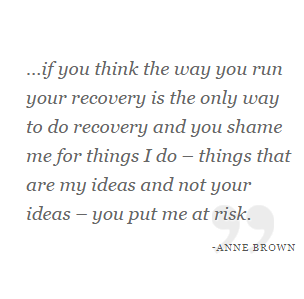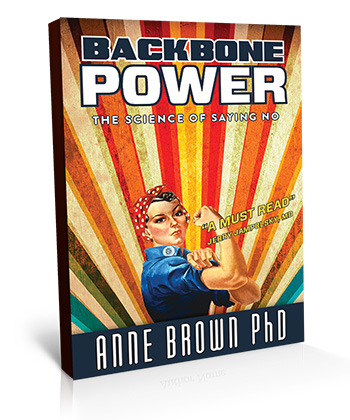
Attending a support group can be a very positive part of your recovery plan, as long as you understand what is healthy and what is dysfunctional. Let’s look at a few qualities of support groups and what happens when things get out of balance…
Similarities vs Enmeshment
When I join a support group and find others who share similar concerns, I have an immediate way of connecting. Why is this a good thing?
- I don’t feel alone.
- I don’t feel so awkward/strange.
- I have others who have a similar body of knowledge about our concern.
- I feel comfortable.
- I can start talking without feeling like an alien.
- I remember that this concern is a part of my life.
- I can be more honest and not feel I need to hide things.
I may bring new ideas to you, you may bring new ideas to me and we end up being able to help each other. We all come with our individual different stories and we are connected by our mutual concern. It is important for me to use the meeting as a strong reminder that I have this concern and as such I must follow my treatment plan for my concern. My concern is not who I am, it is something as a human being that I must address. I want my support group to be where I speak about how to best do my recovery, I don’t want it to isolate me from those who don’t share this concern in life. Isolating me or engaging me in any “We/They” discourse is not healthy for me.
We are all human beings in the world doing life and I may relate to many people who do not share the concern of my support group. It is not in my best interest to be around people who tell me I must exclude healthy people just because they are not in my support group. I want to feel normal, live a normal life, have the things that normal people have…and I believe I can do that if I get a solid, successful recovery. I understand my old interpretation of normal must change. I understand my network of support needs to be healthy and support me in my choices. And I understand normal by definition needs to include healthy choices.
Now if enmeshment starts to happen, that is going to put me at risk. I am me and you are you and what we have in common is we share a concern. The plan you have for you might not work for me and vice versa. Our roads to this support group more than likely were different. The effect of our choices on our bodies, our psyches, our souls, and our lives more than likely were different.

Autonomy vs Control
I am going to do better if I design my recovery to support my becoming an autonomous adult able to take care of my concerns. If I allow everyone to make my decisions, run my program, tell me what to do, I am at risk for creating the very scenario that led me to make choices that sabotage me.
 Yes, I made bad choices – and the answer is not to take away my ability to make choices, but rather to teach me how to make healthy choices. In the same way there are lots of healthy choices in eating, exercise, and different lifestyles, there are healthy choices in recovery. Because you did not go to treatment doesn’t mean that might not be a healthy choice for me. Because you did not meditate doesn’t mean that might not be a healthy choice for me. Again, if you think the way you run your recovery is the only way to do recovery and you shame me for things I do – things that are my ideas and not your ideas – you put me at risk. Time moves on and what you chose and what was available to you may be different from my choices and what might be available to me.
Yes, I made bad choices – and the answer is not to take away my ability to make choices, but rather to teach me how to make healthy choices. In the same way there are lots of healthy choices in eating, exercise, and different lifestyles, there are healthy choices in recovery. Because you did not go to treatment doesn’t mean that might not be a healthy choice for me. Because you did not meditate doesn’t mean that might not be a healthy choice for me. Again, if you think the way you run your recovery is the only way to do recovery and you shame me for things I do – things that are my ideas and not your ideas – you put me at risk. Time moves on and what you chose and what was available to you may be different from my choices and what might be available to me.
My assessment, science/medicine can, and will, offer more options for treating addictions. That being said, there are things that science/medicine can offer me now for my recovery. I believe I should be open to science/medicine and I ought to be able to speak about my ideas in my support group without being shamed and insulted. So, if my meeting encourages healthy discussions about what might be helping me from science/medicine, I am in the right place. If my meeting thinks ungrounded opinions are more important than what I have to offer from medicine/science, I am at risk. If my meeting is stuck on the idea that if I don’t do recovery “the old way” I am not in recovery, that puts me at risk.

This article was originally published on Recovery.org



 Facebook
Facebook LinkedIn
LinkedIn Twitter
Twitter Youtube
Youtube StumbleUpon
StumbleUpon
Leave a Reply